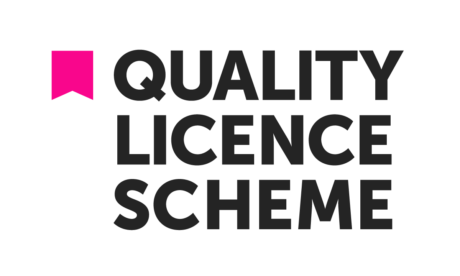Mastering SQL Programming
Level 7 QLS Endorsed | 24/7 Student Support | 50% OFF Certificate & Transcript
885 Students enrolled on this course 4.8 (5 Reviews)
 Last updated July 27, 2023
Last updated July 27, 2023
Course Curriculum
| Beginner | |||
| Module: 01 | |||
| Introduction | FREE | 00:16:00 | |
| Tools for Creating Views | 00:11:00 | ||
| Examples | 00:21:00 | ||
| Updating Data Using a View | 00:13:00 | ||
| Columns and Indexed Views | 00:18:00 | ||
| Module: 02 | |||
| Introduction Stored Procedures | 00:18:00 | ||
| Creating Stored Procedures | 00:19:00 | ||
| Returning Data | 00:14:00 | ||
| Module: 03 | |||
| Testing and Debugging | 00:17:00 | ||
| Execute with Result Sets | 00:11:00 | ||
| Creating Triggers | 00:26:00 | ||
| Module: 04 | |||
| Overview and Scalar Functions | 00:20:00 | ||
| Inline Table Valued Functions | 00:11:00 | ||
| Multi Statement | 00:16:00 | ||
| Views and Stored Procedures | 00:18:00 | ||
| Module: 05 | |||
| Transaction Concepts | 00:30:00 | ||
| Applications and Transactions | 00:13:00 | ||
| Creating Explicit Transactions | 00:29:00 | ||
| Structured Error Handling | 00:25:00 | ||
| Module: 06 | |||
| Introduction to SQL CLR | 00:08:00 | ||
| Writing SQL CLR Code | 00:24:00 | ||
| Using SQL CLR Code | 00:22:00 | ||
| SQL CLR Code | 00:13:00 | ||
| SQL CLR Security | 00:20:00 | ||
| Intermediate | |||
| Module: 01 | |||
| Topic A Aggregates | 00:27:00 | ||
| Topic B User Defined Types | 00:17:00 | ||
| Topic C Table and Functions | 00:10:00 | ||
| Topic D Managing Code Modules | 00:08:00 | ||
| Module: 02 | |||
| Topic A Introduction Data Tools | 00:19:00 | ||
| Topic B Connected Database Development | 00:20:00 | ||
| Topic C Updating a Connected Database | 00:16:00 | ||
| Module: 03 | |||
| Topic A Creating New Objects with TSQL | 00:12:00 | ||
| Topic B Comparing Database Schemas | 00:10:00 | ||
| Topic C Offline Database Development | 00:13:00 | ||
| Topic D Database Project Settings | 00:18:00 | ||
| Module: 04 | |||
| Topic A Using APPLY | 00:15:00 | ||
| Topic B MERGE Statement | 00:23:00 | ||
| Topic C Creating Recursive Queries | 00:08:00 | ||
| Topic D Grouping Sets | 00:12:00 | ||
| Module: 05 | |||
| Topic A ROLLUP and CUBE Operators | 00:12:00 | ||
| Topic B Creating Pivot Queries | 00:14:00 | ||
| Topic C Executing Dynamic SQL | 00:28:00 | ||
| Module: 06 | |||
| Topic A Complex Query Execution | 00:26:00 | ||
| Topic B Using Execution Plans | 00:16:00 | ||
| Topic C Execution Plan Operators | 00:12:00 | ||
| Topic D Common Join Operators | 00:16:00 | ||
| Module: 07 | |||
| Topic A Hierarchy ID Data Type | 00:12:00 | ||
| Topic B Exploring a Hierarchy | 00:09:00 | ||
| Topic C Sparse Columns | 00:16:00 | ||
| Topic D Column Sets | 00:12:00 | ||
| Module: 08 | |||
| Topic A Filtered Indexes | 00:09:00 | ||
| Topic B FILESTREAM Storage | 00:22:00 | ||
| Topic C Adding Sequences to Queries | 00:22:00 | ||
| Module: 09 | |||
| Topic A Introduction to Spatial Data | 00:13:00 | ||
| Topic B Spatial Data in SQL Server | 00:23:00 | ||
| Topic C Manipulating Spatial Shapes | 00:10:00 | ||
| Topic D Interactions Between Objects | 00:09:00 | ||
| Advanced | |||
| Module: 01 | |||
| Topic A Partitioning | 00:20:00 | ||
| Topic B Creating Partition Tables | 00:30:00 | ||
| Topic C Querying Partitions | 00:14:00 | ||
| Topic D Managing Partitions | 00:17:00 | ||
| Module: 02 | |||
| Topic A Complex Querying | 00:22:00 | ||
| Topic B Rankings | 00:15:00 | ||
| Topic C SubQueries | 00:21:00 | ||
| Topic D Common Table Expressions | 00:17:00 | ||
| Module: 03 | |||
| Topic A Complex Data and Structures | 00:26:00 | ||
| Topic B Efficient Queries | 00:36:00 | ||
| Topic C Complex Queries | 00:17:00 | ||
| Module: 04 | |||
| Topic A XML Data Type | 00:28:00 | ||
| Topic B XML Schemas | 00:17:00 | ||
| Topic C Querying XML | 00:20:00 | ||
| Topic D Best Practices | 00:08:00 | ||
| Mock Exam | |||
| Mock Exam – Mastering SQL Programming | 00:20:00 | ||
| Final Exam | |||
| Final Exam – Mastering SQL Programming | 00:20:00 | ||
| Assignment | |||
| Assignment – Mastering SQL Programming | 1 week, 3 days | ||
| Recommended Materials | |||
| Workbook – Mastering SQL Programming | 2 weeks, 1 day | ||
| Order Your Certificate | |||
| Order your Certificate QLS | 00:00:00 | ||
Course Reviews
Frequently asked questions
Can’t find the anwser you’re looking for ? Reach out to customer support team.
There are no specific prerequisites for this course, nor are there any formal entry requirements. All you need is an internet connection, a good understanding of English and a passion for learning for this course.
You have the flexibility to access the course at any time that suits your schedule. Our courses are self-paced, allowing you to study at your own pace and convenience.
For this course, you will have access to the course materials for 1 year only. This means you can review the content as often as you like within the year, even after you've completed the course. However, if you buy Lifetime Access for the course, you will be able to access the course for a lifetime.
Yes, upon successfully completing the course, you will receive a certificate of completion. This certificate can be a valuable addition to your professional portfolio and can be shared on your various social networks.
We want you to have a positive learning experience. If you're not satisfied with the course, you can request a course transfer or refund within 14 days of the initial purchase.
Our platform provides tracking tools and progress indicators for each course. You can monitor your progress, completed lessons, and assessments through your learner dashboard for the course.
If you encounter technical issues or content-related difficulties with the course, our support team is available to assist you. You can reach out to them for prompt resolution.





 LOGIN/Sign up
LOGIN/Sign up





Sarah Lowe
I’m a programmer. took the course for learnig SQL in details… and it satisfied me very much.
Robert Connor
very very informative course!!! for all who wants to be professional SQL programmer.
Juan Montgomery
Awesome!!!! At last found a great source of contents about SQL advanced lessons. Very happy with that.
Wendy Glaser
Found many modules which arranged in a good sequence. easy to catch the topic from beginner to advance.
Eleanor Williams
Great course of SQL learning!!!!